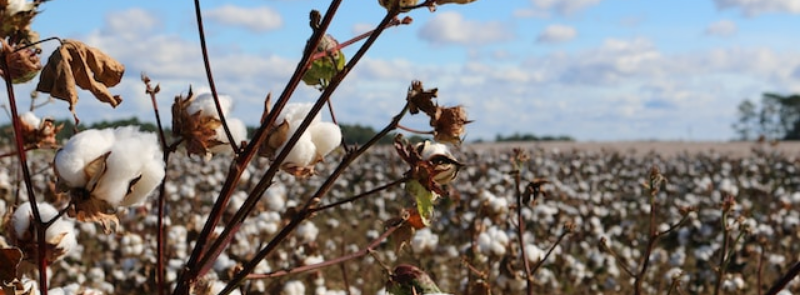
When It Occurs
Every October 7th
Official Website
Timeline
Days Passed (869)
# Hashtags
#WorldCottonDay #CelebrateCotton
Cotton, a widespread commodity cultivated in more than 75 countries across five continents, is a globally traded product. World Cotton Day, observed annually on October 7, serves as a platform to emphasize the significance of cotton in generating employment and sustaining economic stability, especially in cotton-producing nations, particularly those categorized as least-developed countries (LDCs). The celebrations on this day are geared towards promoting sustainable trade policies and empowering developing countries to reap benefits from participating in all aspects of the cotton value chain.
History and Background
- Establishment: World Cotton Day was first observed on October 7, 2019.
- Initiative: It was initiated by the Cotton-4 (Benin, Burkina Faso, Chad, and Mali) countries with the support of the World Trade Organization (WTO) to raise awareness about the importance of cotton in global trade and development.
Objectives and Significance
- Promote Cotton Industry: Highlight the economic, social, and cultural importance of cotton in producing countries and beyond.
- Sustainable Practices: Advocate for sustainable cotton production practices, including environmental stewardship, fair trade, and labor rights.
- Global Trade: Facilitate discussions on cotton trade policies, market access, and international cooperation.
- Community Engagement: Engage stakeholders, including governments, industry players, farmers, and consumers, in promoting sustainable cotton initiatives.
Themes and Focus Areas
- Cotton Production: Focus on sustainable farming practices, technology adoption, and innovation in cotton cultivation.
- Market Dynamics: Address global market trends, supply chain challenges, and economic impacts of cotton production and trade.
- Social Impact: Emphasize the role of cotton in rural development, poverty alleviation, and improving livelihoods in cotton-growing communities.
- Environmental Sustainability: Promote eco-friendly practices, water conservation, and biodiversity protection in cotton farming.
Activities and Celebrations
- Conferences and Workshops: Host conferences, seminars, and workshops on cotton industry trends, sustainability, and market dynamics.
- Exhibitions and Fairs: Organize exhibitions, trade fairs, and cultural events showcasing cotton products, innovations, and traditions.
- Policy Dialogues: Facilitate policy dialogues among stakeholders, governments, and international organizations on cotton-related issues.
- Public Awareness Campaigns: Launch awareness campaigns, social media initiatives, and educational programs to inform consumers about the benefits of sustainable cotton.
How to Participate
- Support Sustainable Initiatives: Purchase products made from sustainably sourced cotton and support brands committed to ethical and fair trade practices.
- Learn and Educate: Learn about the cotton industry, sustainability challenges, and innovations in cotton farming and processing.
- Advocate for Policies: Advocate for policies that promote sustainable cotton production, fair trade practices, and environmental protection.
- Engage in Events: Participate in World Cotton Day events, discussions, and initiatives organized locally or online.
Global Participation
- International Reach: Celebrated globally by stakeholders in the cotton industry, including producers, manufacturers, retailers, and consumers.
- Regional Diversity: Events and activities reflect regional perspectives, cultural traditions, and economic impacts of cotton production and trade.
- Collaborative Efforts: Promotes collaboration among countries, organizations, and communities to achieve sustainable development goals related to cotton.
Resources and Support
- WTO Support: Provides resources, publications, and advocacy platforms for promoting sustainable cotton initiatives and market access.
- Industry Partnerships: Collaborates with international organizations, NGOs, and private sector entities to advance sustainable cotton production and trade.
- Research and Innovation: Supports research initiatives and technological innovations aimed at improving cotton farming practices, efficiency, and sustainability.
Notable Observations and Examples
- Industry Innovations: Showcases technological advancements, best practices, and success stories in sustainable cotton farming and production.
- Fair Trade Initiatives: Highlights fair trade certifications and initiatives that ensure fair wages and working conditions for cotton farmers and workers.
- Community Development: Demonstrates how cotton cultivation contributes to economic growth, rural development, and social welfare in producing regions.
Key Messages
- Sustainability: Promote sustainable practices in cotton production, processing, and consumption to minimize environmental impact.
- Economic Development: Highlight the role of cotton in poverty reduction, job creation, and economic resilience in developing countries.
- Consumer Awareness: Educate consumers about the importance of choosing sustainable cotton products and supporting ethical supply chains.
- Global Cooperation: Advocate for international cooperation and trade policies that benefit cotton-producing countries and promote equitable global trade.
World Cotton Day serves as a platform to celebrate the cultural, economic, and environmental significance of cotton while promoting sustainable practices and inclusive development across the global cotton industry.


